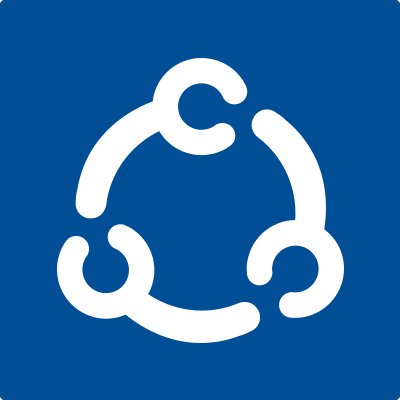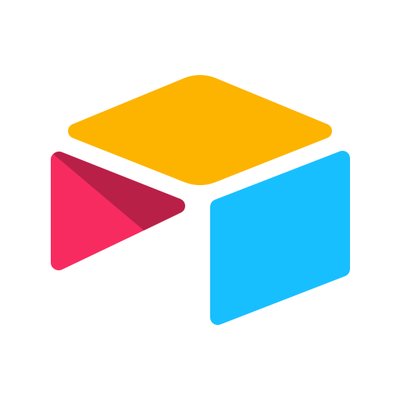Richpanel streamlines customer service for e-commerce brands, with Shopify integrations

- Services
- Resources
- More
- Store
TLDR
Insights
Richpanel streamlines customer service for e-commerce brands, with Shopify integrations
and self-service portals. But higher-tier pricing locks out key AI tools.
✅ Built-in self-service portal reduces manual workload
✅ Segmentation tools for personalizing customer interactions
⚠ Advanced AI automation is only in premium plans
⚠ Fewer third-party integrations than Zendesk or Gorgias
Launchpoint Take: If you’re running a Shopify store, Richpanel is a smart choice. But if
you need enterprise-level automation, Zendesk may be a better choice.
Key Insights & Findings
Pricing & Accessibility
● Affordable for small and mid-sized businesses, but some AI-driven features are
only available in premium tiers.
● Concerns over value at higher pricing tiers, as users feel advanced automation
tools should be more accessible.
Ease of Use & Learning Curve
● Easy setup with Shopify, making it a go-to choice for e-commerce brands.
● Minimal learning curve compared to Gorgias, allowing teams to onboard quickly
without extensive training.
● Users transitioning from traditional CRMs like Zendesk find Richpanel’s UI more
intuitive.
Integration Strengths
● Best suited for Shopify – manages multiple stores seamlessly.
● Solid multi-channel support – integrates email, live chat, social media, and SMS
into one dashboard.
● API flexibility for deeper automation, though not as broad as Gorgias for
third-party app integrations.
User Experience & Common Concerns
● Pros:
✅ Self-service portal reduces manual support load.
✅ Robust segmentation tools for targeting customers with automated workflows.
✅ Simple, no-fuss UI that makes customer support management easier.
● Cons:
⚠ Advanced AI-powered automation is limited to higher-tier plans.
⚠ Less extensive third-party integrations compared to Gorgias.
⚠ Lacks deeper macro-based automation found in Gorgias.
Alternative Competitors Mentioned
● Zendesk – Better for enterprises that need a broader, more traditional support
platform.
Strengths
✅ Multi-channel support for Shopify and e-commerce.
✅ Easy to use with minimal setup time.
✅ Segmentation tools help personalize customer interactions.
✅ Self-service portal helps businesses reduce support load.
Common Criticisms
⚠ Some key AI and automation features are restricted to higher-tier plans.
⚠ Fewer third-party integrations compared to Gorgias.
⚠ Not as customizable for businesses outside of e-commerce.
Key Features
✔ Multi-Channel Automation – Automates responses across live chat, email, SMS, and
social.
✔ Segmentation Capabilities – Organizes customer data based on behavior, purchase
history, and engagement.
✔ Pre-Built Automation Flows – Templates for abandoned cart recovery, order tracking,
and support workflows.
✔ Integrations – Best for Shopify, integrates with CRMs and marketing tools.
✔ AI-Powered Features – Automated responses and data-driven insights, but limited in
lower-tier plans.
✔ Reporting & Analytics – Tracks customer service performance and team efficiency.
Conclusion
Who Should Use This Product?
✅ E-commerce brands needing an easy-to-use, Shopify-focused customer support tool.
✅ Businesses looking for strong segmentation and automation capabilities.
✅ Support teams that want to reduce manual work using a self-service portal.
Who Should Consider an Alternative?
⚠ Larger businesses needing more advanced automation & AI-driven features at lower
price points.
⚠ Companies that require extensive third-party integrations beyond Shopify.
⚠ Businesses outside of e-commerce that need a more customizable helpdesk solution.
Final Verdict
Richpanel is a great fit for small to mid-sized e-commerce businesses looking to streamline
customer support with automation and self-service tools. However, those needing
advanced AI features or broader third-party integrations may find Gorgias or Zendesk to
be better suited.
Key Features
Richpanel streamlines customer service for e-commerce brands, with Shopify integrations
and self-service portals. But higher-tier pricing locks out key AI tools.
✅ Built-in self-service portal reduces manual workload
✅ Segmentation tools for personalizing customer interactions
⚠ Advanced AI automation is only in premium plans
⚠ Fewer third-party integrations than Zendesk or Gorgias
Launchpoint Take: If you’re running a Shopify store, Richpanel is a smart choice. But if
you need enterprise-level automation, Zendesk may be a better choice.
Key Insights & Findings
Pricing & Accessibility
● Affordable for small and mid-sized businesses, but some AI-driven features are
only available in premium tiers.
● Concerns over value at higher pricing tiers, as users feel advanced automation
tools should be more accessible.
Ease of Use & Learning Curve
● Easy setup with Shopify, making it a go-to choice for e-commerce brands.
● Minimal learning curve compared to Gorgias, allowing teams to onboard quickly
without extensive training.
● Users transitioning from traditional CRMs like Zendesk find Richpanel’s UI more
intuitive.
Integration Strengths
● Best suited for Shopify – manages multiple stores seamlessly.
● Solid multi-channel support – integrates email, live chat, social media, and SMS
into one dashboard.
● API flexibility for deeper automation, though not as broad as Gorgias for
third-party app integrations.
User Experience & Common Concerns
● Pros:
✅ Self-service portal reduces manual support load.
✅ Robust segmentation tools for targeting customers with automated workflows.
✅ Simple, no-fuss UI that makes customer support management easier.
● Cons:
⚠ Advanced AI-powered automation is limited to higher-tier plans.
⚠ Less extensive third-party integrations compared to Gorgias.
⚠ Lacks deeper macro-based automation found in Gorgias.
Alternative Competitors Mentioned
● Zendesk – Better for enterprises that need a broader, more traditional support
platform.
Strengths
✅ Multi-channel support for Shopify and e-commerce.
✅ Easy to use with minimal setup time.
✅ Segmentation tools help personalize customer interactions.
✅ Self-service portal helps businesses reduce support load.
Common Criticisms
⚠ Some key AI and automation features are restricted to higher-tier plans.
⚠ Fewer third-party integrations compared to Gorgias.
⚠ Not as customizable for businesses outside of e-commerce.
Key Features
✔ Multi-Channel Automation – Automates responses across live chat, email, SMS, and
social.
✔ Segmentation Capabilities – Organizes customer data based on behavior, purchase
history, and engagement.
✔ Pre-Built Automation Flows – Templates for abandoned cart recovery, order tracking,
and support workflows.
✔ Integrations – Best for Shopify, integrates with CRMs and marketing tools.
✔ AI-Powered Features – Automated responses and data-driven insights, but limited in
lower-tier plans.
✔ Reporting & Analytics – Tracks customer service performance and team efficiency.
Conclusion
Who Should Use This Product?
✅ E-commerce brands needing an easy-to-use, Shopify-focused customer support tool.
✅ Businesses looking for strong segmentation and automation capabilities.
✅ Support teams that want to reduce manual work using a self-service portal.
Who Should Consider an Alternative?
⚠ Larger businesses needing more advanced automation & AI-driven features at lower
price points.
⚠ Companies that require extensive third-party integrations beyond Shopify.
⚠ Businesses outside of e-commerce that need a more customizable helpdesk solution.
Final Verdict
Richpanel is a great fit for small to mid-sized e-commerce businesses looking to streamline
customer support with automation and self-service tools. However, those needing
advanced AI features or broader third-party integrations may find Gorgias or Zendesk to
be better suited.
Conclusion
Richpanel streamlines customer service for e-commerce brands, with Shopify integrations
and self-service portals. But higher-tier pricing locks out key AI tools.
✅ Built-in self-service portal reduces manual workload
✅ Segmentation tools for personalizing customer interactions
⚠ Advanced AI automation is only in premium plans
⚠ Fewer third-party integrations than Zendesk or Gorgias
Launchpoint Take: If you’re running a Shopify store, Richpanel is a smart choice. But if
you need enterprise-level automation, Zendesk may be a better choice.
Key Insights & Findings
Pricing & Accessibility
● Affordable for small and mid-sized businesses, but some AI-driven features are
only available in premium tiers.
● Concerns over value at higher pricing tiers, as users feel advanced automation
tools should be more accessible.
Ease of Use & Learning Curve
● Easy setup with Shopify, making it a go-to choice for e-commerce brands.
● Minimal learning curve compared to Gorgias, allowing teams to onboard quickly
without extensive training.
● Users transitioning from traditional CRMs like Zendesk find Richpanel’s UI more
intuitive.
Integration Strengths
● Best suited for Shopify – manages multiple stores seamlessly.
● Solid multi-channel support – integrates email, live chat, social media, and SMS
into one dashboard.
● API flexibility for deeper automation, though not as broad as Gorgias for
third-party app integrations.
User Experience & Common Concerns
● Pros:
✅ Self-service portal reduces manual support load.
✅ Robust segmentation tools for targeting customers with automated workflows.
✅ Simple, no-fuss UI that makes customer support management easier.
● Cons:
⚠ Advanced AI-powered automation is limited to higher-tier plans.
⚠ Less extensive third-party integrations compared to Gorgias.
⚠ Lacks deeper macro-based automation found in Gorgias.
Alternative Competitors Mentioned
● Zendesk – Better for enterprises that need a broader, more traditional support
platform.
Strengths
✅ Multi-channel support for Shopify and e-commerce.
✅ Easy to use with minimal setup time.
✅ Segmentation tools help personalize customer interactions.
✅ Self-service portal helps businesses reduce support load.
Common Criticisms
⚠ Some key AI and automation features are restricted to higher-tier plans.
⚠ Fewer third-party integrations compared to Gorgias.
⚠ Not as customizable for businesses outside of e-commerce.
Key Features
✔ Multi-Channel Automation – Automates responses across live chat, email, SMS, and
social.
✔ Segmentation Capabilities – Organizes customer data based on behavior, purchase
history, and engagement.
✔ Pre-Built Automation Flows – Templates for abandoned cart recovery, order tracking,
and support workflows.
✔ Integrations – Best for Shopify, integrates with CRMs and marketing tools.
✔ AI-Powered Features – Automated responses and data-driven insights, but limited in
lower-tier plans.
✔ Reporting & Analytics – Tracks customer service performance and team efficiency.
Conclusion
Who Should Use This Product?
✅ E-commerce brands needing an easy-to-use, Shopify-focused customer support tool.
✅ Businesses looking for strong segmentation and automation capabilities.
✅ Support teams that want to reduce manual work using a self-service portal.
Who Should Consider an Alternative?
⚠ Larger businesses needing more advanced automation & AI-driven features at lower
price points.
⚠ Companies that require extensive third-party integrations beyond Shopify.
⚠ Businesses outside of e-commerce that need a more customizable helpdesk solution.
Final Verdict
Richpanel is a great fit for small to mid-sized e-commerce businesses looking to streamline
customer support with automation and self-service tools. However, those needing
advanced AI features or broader third-party integrations may find Gorgias or Zendesk to
be better suited.

 Talk to Launchpoint Expert
Talk to Launchpoint Expert 




 Talk to an Expert
Talk to an Expert